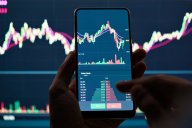Featured articles

Why Michael Burry just sold all his stocks
Michael Burry just sold over $70 million in stock, liquidating his entire portfolio except for one stock, doubling down on a company that other investors are fleeing in droves.
15:28, 18 July 2025

Euro forecast 2025-2030: Third-party targets
EUR/USD is trading at 1.17648 as of 10:26 UTC on 9 September 2025, holding near the upper end of its intraday range of 1.1706-1.1779 amid broad-based US dollar weakness.
19 hours ago

Crypto CFDs: Popular cryptocurrencies for trading
Discover which cryptocurrencies are trending for CFD trading in 2025 – from bitcoin to newly listed coins like SUI and PEPE.
10:46, 31 July 2025

Salesforce stock forecast: Third-party targets
Salesforce (CRM) was trading at $254.05 in early trading on 10 September, after moving within an intraday range of $252.05 to $254.20.
16 hours ago

Alphabet stock forecast 2025-2030: Third-party predictions
Alphabet (GOOG) was trading at $166.80 at 15:51 UTC, within the day’s $164.66-$171.40 range. The price is holding mid-range in the session (8 September 2025).
16:20, 15 September 2025

Oracle stock forecast 2025-2030: Third-party price target and future outlook
Oracle (ORCL) is trading at $238.60 on 8 September 2025 at 11:59 UTC, just below its intraday high of $239.04 and above the day’s low of $222.91.
13:53, 15 September 2025

Trading the Nasdaq 100 Over 24,000
Another milestone for the tech-heavy index helps keep the technical overview bullish, but in sentiment it’s a story of opposing bias when it comes to CoT speculators and Capital.com’s clients.
10:10, 15 September 2025

Volatility index forecast: Third-party VIX price target
Discover the Volatility Index forecast for 2025 and beyond, with third-party analysts’ VIX targets and more.
21 hours ago

Trading the Nasdaq 100 Over 24,000
Another milestone for the tech-heavy index helps keep the technical overview bullish, but in sentiment it’s a story of opposing bias when it comes to CoT speculators and Capital.com’s clients.
10:10, 15 September 2025

Trading the Dow 30 After a Weak NFP
The technical overview remains unchanged in both daily and weekly time frames, while in sentiment CoT speculators raised their net sell bias.
10:34, 8 September 2025

US 500 index forecast: Third-party US 500 price target
Discover the US 500 (US 500) index price forecast for 2025 and beyond, with analyst price targets and more.
12:59, 5 September 2025

Oil forecast: Third-party price targets
Discover the latest oil price forecast for 2025, with WTI and Brent crude outlooks, analyst targets and technical analysis.
17 hours ago

Copper price forecast: Third-party predictions 2025-2030
Copper is a critical industrial and energy-transition metal, widely used in electrical wiring, plumbing, and HVAC systems within construction; as well as in power grids, electric vehicles, and renewable energy technologies.
02:44, 16 September 2025

An extremely rare signal just triggered on copper
A line can be drawn on copper's price chart starting in 2006, capturing one, two, three, four reactions over 19 consecutive years.
18:57, 13 September 2025

Five factors driving gold to record highs
Major tailwinds are pushing gold to new all-time highs.
13:49, 4 September 2025

Euro forecast 2025-2030: Third-party targets
EUR/USD is trading at 1.17648 as of 10:26 UTC on 9 September 2025, holding near the upper end of its intraday range of 1.1706-1.1779 amid broad-based US dollar weakness.
19 hours ago

Trading EUR/USD Amidst ECB and US CPI Events
It has been a story of relative calm and slight positive technical bias ahead of the fundamental events, with CoT speculators net long while Capital.com clients shift to the middle.
07:08, 11 September 2025

UK interest rate forecast for the next five years
Explore the UK interest rate forecast with third‑party predictions, trends, and a five‑year outlook for projected UK interest rates.
10:51, 8 September 2025

Australian dollar forecast: Third-party price target
What’s next for AUD/USD? Here’s our round-up of third-party Australian dollar forecasts, with analysts’ insights, price history, and forex rate drivers for CFD traders.
19:56, 18 August 2025

Sui price prediction 2025-2050: Third-party SUI insights
Sui (SUI) is a layer-1 blockchain developed by Mysten Labs to support high transaction throughput and fast finality through its customised version of the Move programming language, called Sui Move.
20 hours ago

Fartcoin price prediction 2025-2050: Third-party FARTCOIN insights
Fartcoin is a Solana-based memecoin that launched in October 2024, combining internet culture with meme-led appeal and community engagement.
20 hours ago

Trump coin price prediction 2025-2050: Third-party TRUMP insights
Read our Official Trump coin price prediction for 2025 and beyond, with TRUMP insights from third-party analysts and market experts.
08:31, 8 September 2025

Shiba Inu price prediction 2025-2050: Third-party SHIB insights
Read our Shiba Inu price prediction for 2025 and beyond, with SHIB insights from third-party analysts and market experts.
12:18, 5 September 2025
